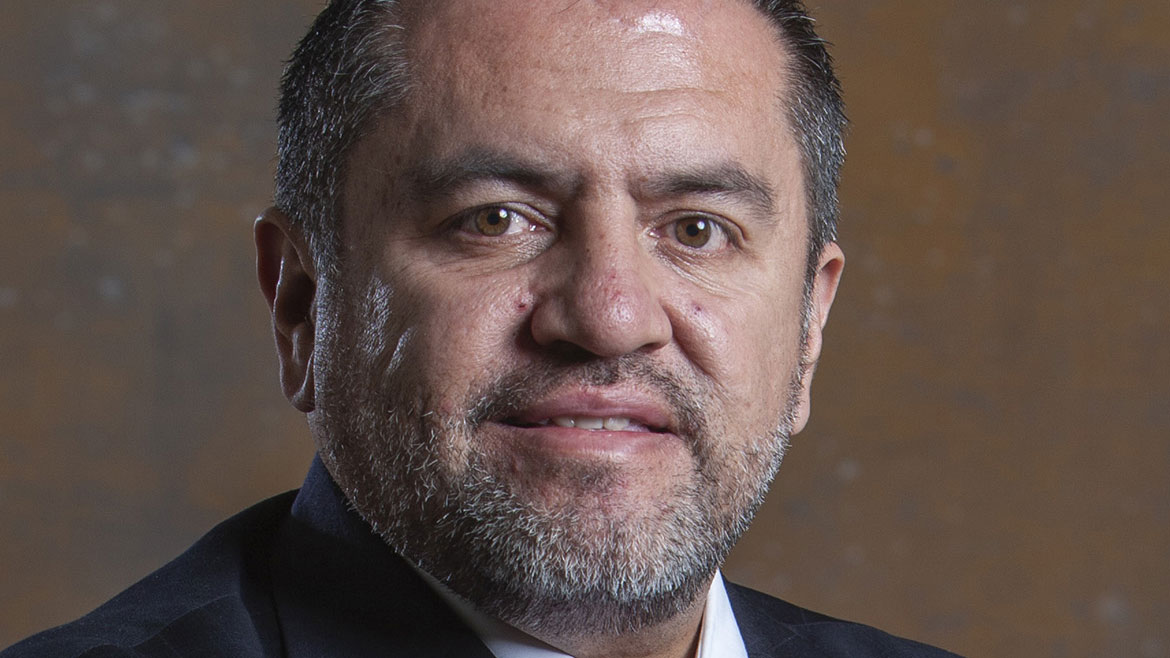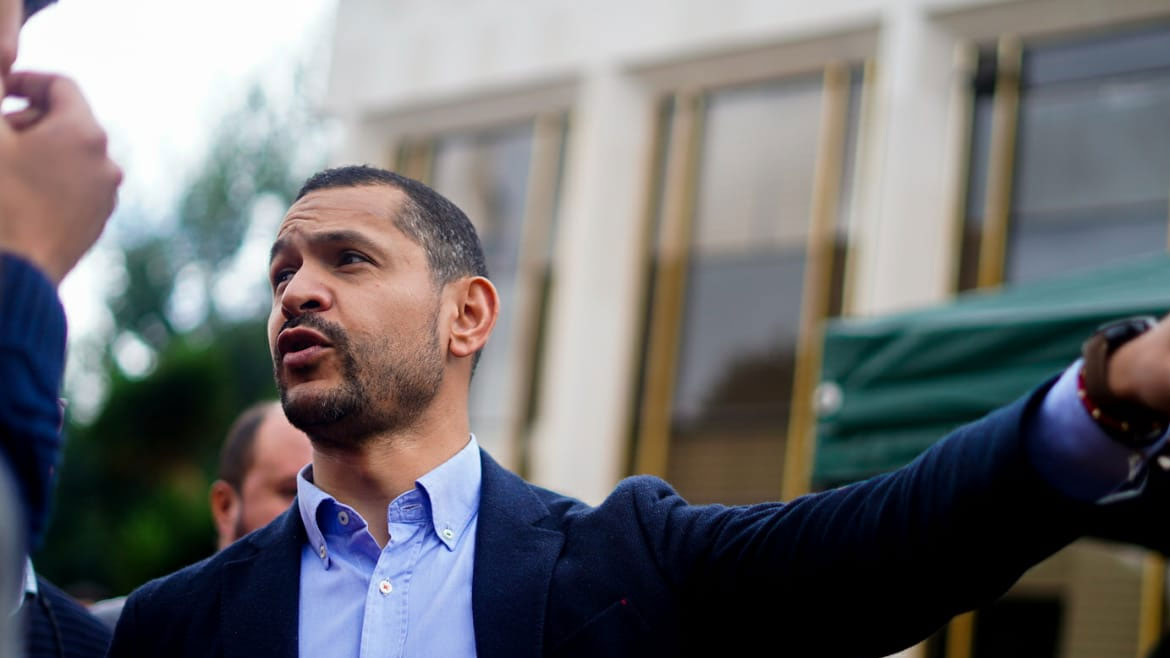A Supreme Court investigation against a Liberal Party senator put the pet project of Colombia’s first lady at the center of a corruption scandal.
The Supreme Court investigation against jailed Senator Mario Castaño also revealed that corrupt elements within the Prosecutor General’s Office tried to obstruct investigations into the corruption.
Part of the “Sacudete al Parque” scandal was unveiled after the arrest of Castaño, who was accused of being the leader of an organized crime group dedicated to embezzling public funds last week.
The Castaño Clan
Castaño was arrested on Tuesday after the prosecution arrested one of his congressional aides and eight other alleged members of the senator’s alleged organized crime group in March.
The senator’s right-hand-man, Juan Carlos Martinez, went on the run.
According to the prosecution, the senator’s office in the capitol was the headquarters of a mafia that made $11 million (COP43 billion) from kickbacks they received from private contractors since 2020.
Businessmen and other individuals allegedly frequented the congressman to benefit from contracts. In this sense, officials of various entities allegedly adjusted the contract specifications and conditions required in public works bids in different departments so that they would end up in the hands of the bidders indicated by the senator.
Prosecutor General’s Office
In a wiretapped phone conversation, the senator told Martinez that he had been racketeering for 15 years.
Since his election to Congress in 2014, Castaño had expanded his alleged criminal empire to at least five provinces in Colombia’s coffee region and along the Caribbean coast, according to the prosecution.
Prosecutors on Friday seized 21 real estate properties and two businesses that allegedly belonged to the Senator in his native Manizales province and the cities of Medellin, Quibdo and Cartagena.
The seized assets had a value of $1.2 million (COP5 billion), the Prosecutor General’s Office said.
How the Castaño Clan allegedly operated
The Supreme Court claim contradicted the Prosecutor General’s Office, which said in March that it had “taken down” the corruption network working for the senator.
According to the court, Castaño’s organized crime group was still active and included prosecution officials who kept the senator up to date about the details of the investigation.
The organized crime group allegedly charged a kickback free of between 10% and 20% for every project granted by the Interior Ministry, the Supreme Court said Friday.
Castaño additionally used his influence to bolster his political power through appointments in government organizations.
The Supreme Court additionally accused Castaño of illegally managing the liquor production license for the western Choco province.
Duque’s corrupt flagship project

President Ivan Duque and Interior Minister Daniel Palacios inaugurate one of the parks for which Castaño allegedly received a kickback from the city hall in Tulua, Valle del Cauca (Image: Interior Ministry)
Castaño’s main racket was the flagship “Sacudate al Parque” project of First Lady Maria Juliana Ruiz that is being executed by Interior Minister Daniel Palacios.
The multi-million dollar project is partly financed by the Inter-American Development Bank, the former employer of President Ivan Duque.
Sacudate al Parque sought the development of, among other things, more than 338 soccer fields before 2024, Palacios said in August.
Duque and his wife personally inaugurated the first three parks of 2022 in the northern Cesar province in January.
Four months later, heavy rains destroyed the park in the town of La Jagua de Ibirico already.
Two weeks after the arrest of Castaño’s alleged clan members in March, W Radio reported that the bidding process in 50 of Sacudate al Parque projects were apparently rigged due to “a lobby by congressmen to favor certain contractors.”
Notwithstanding, the Interior Ministry responded that it had “NOT received complaints about alleged irregularities in the selection process of contractors.”
Rumors about a criminal investigation into the Castaño Clan started immediately after Palacios announced the project in August, according to news website Las Dos Orillas.
The alleged machine
According to the prosecution, Castaño allegedly used his growing criminal empire to also bolster his political power in Bogota.
The senator allegedly lobbied the employment of clan members at the Family Welfare Institute, public education institution SENA, the Inspector General’s Office, the Comptroller General’s Office and the National Mining Agency.
A week after the arrest of his alleged clan members in March, the senator was reelected with 68,315 votes, presumably with the help of corrupt associates as many members of the Castaño clan were already behind bars.
The Supreme Court on Friday expressed the Castaño Clan’s influence in the Prosecutor General’s Office and ordered a criminal investigation into the prosecution itself.
There is an imminent risk that the defendant and persons close to him and subordinate to him may alter the evidence that is about to be collected.
Supreme Court
Government involvement in the embezzlement
Castaño’s claim that he had been racketeering since 2007 raises questions why the prosecution only investigated alleged corruption after 2020.
All of the Castaño Clan’s alleged local associates were elected in 2019 when the senator admittedly was already engaged in corruption.
The prosecution also failed to investigate Palacios, whose office allegedly allowed Castaño to “distribute” Interior Ministry contracts.
Palacios came under fire in May after the Anti-Corruption Institute revealed that the Interior Ministry had illegally granted contracts with a value of more than $1.2 billion (COP5 trillion) in violation of anti-election fraud legislation that took force in November.
In an attempt to bypass the laws that seek to prevent the use of public funds for political campaigns, Duque and his congressional coalition illegally suspended that part of the “Guarantees Law” while approving the 2022 budget.
This is a predominantly fraudulent congress that promoted the reform of the Guarantees Law knowing that it was unconstitutional, in order to distribute five trillion pesos in slush funds in the middle of the electoral period in agreement with the President of the Republic. This is what academics call systemic corruption.
Anti-corruption Institute President Camilo Enciso
Colombia made $1.2B available for possible slush funds
The Constitutional Court declared the contracts null and void, and confirmed that Duque and his congressional coalition in had illegally suspended key elements of the so-called “Guarantees Law” to bypass anti-election fraud legislation
The ruling triggered the opposition to press a flurry of criminal charges against the government coalition.
With the exception of Castaño, the prosecution has yet to report progress in the investigations into Duque’s allegedly criminal coalition allies.






